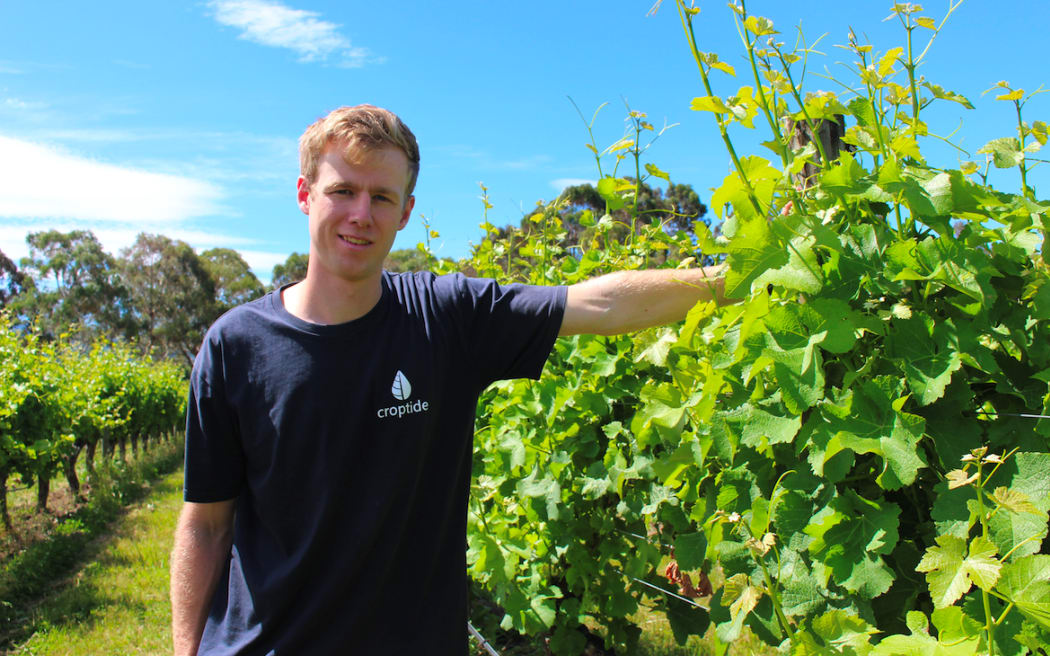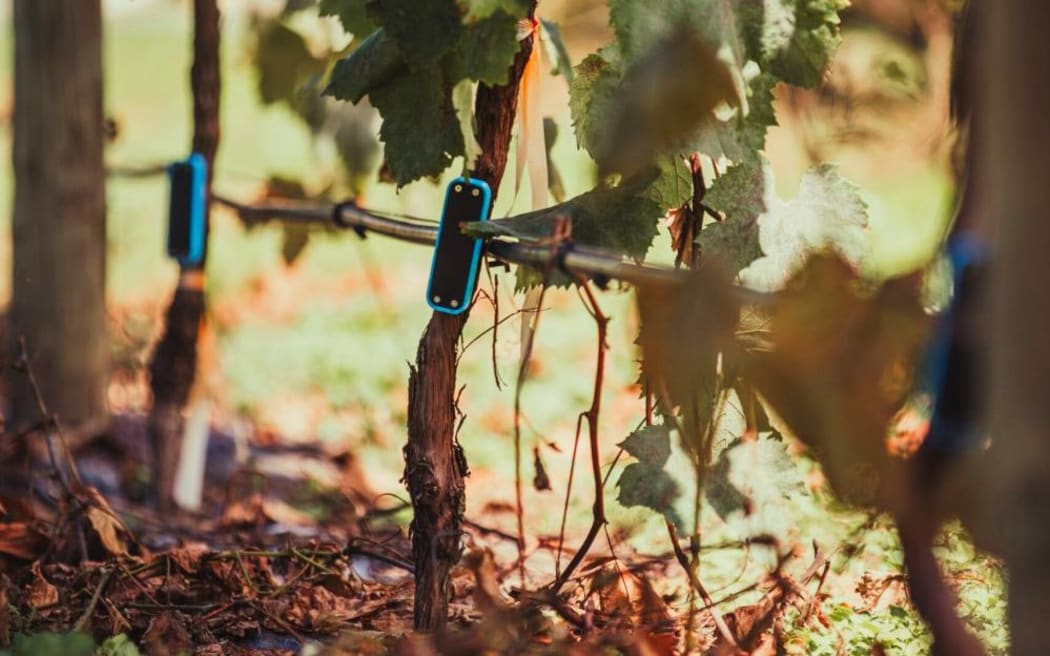
Croptide chief executive Hamish Penny says in some cases the company's technology has the potential to reduce water usage by more than half. Photo: Supplied
New technology which could help save water use in the horticulture sector is being trialled in Hawke's Bay orchards this summer.
Croptide has closed a $4.25 million seed funding raised for the commercial pilots.
The company created sensors which are plugged into the stem of plants, like apple trees, grapevines or kiwifruit vines, to measure the water status in real-time.
That information is then sent to an app on the grower's phone, allowing them to decide where and how much to irrigate.
Croptide chief executive Hamish Penny said there had been a lot of interest and tests around the country had been successful.
"We've been working with some great partners for the last couple of years while we develop the technology, Zespri, T&G, Rockit, Villa Maria, Cloudy Bay and Pernod Ricard have been our first supporters.
"They've been running tests for us and now we doing significant commercial trials this summer."

Croptide's sensors are put on the stem of the plant to measure its water status in real-time. Photo: Supplied
Conditions were forecast to be a bit dryer this summer so hopefully there was an opportunity to see value in Croptide, he said.
"Croptide's insights have shown us there's an opportunity to be much more precise through having irrigation decisions driven from the plant.
"The plant can literally tell you when it needs to be watered. In some cases this can reduce water usage by over 50 percent, while maximising yield and fruit quality outcomes," Penny said.
Croptide is hoping to validate the technology this season so it can be sold to growers as soon as possible.
"Interest has been high and we've even done trials in California, Washington, Spain, France and Italy so we're looking to sell into those markets as well."



